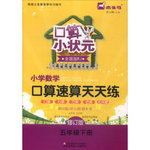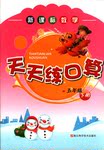题目内容
On August 26, 1999, New York City experienced a terrible rainstorm. The rain caused the streets to 1 and the subway system (地铁系统)almost came to a stop.
Unfortunately, this happened during the morning rush hour. Many people who were going to work were 2 to go home. Some battled to 3 a taxi or to get on a bus. Still others faced the 4 bravely, walking miles to get to work..
I 5 to be one of the people on the way to work that morning. I went from subway line to subway line only to find that most 6 had stopped. After making my way 7crowds of people, I finally found a subway line that was operating . 8, there were so many people waiting to 9 the subway that I could not even get down the stairs to the platform.(月台) So I took the train going in the 10direction, and then turn back to the downtown train. Finally, after what seemed like an forever journey, the train 11 my stop. Then I had to walk several blocks in the increasingly heavy rain. When I finally got to my office, I was 12 through, discouraged and 13.
My co-workers and I spent most of the day drying off. When it was 5:00 pm,I was ready to go home. I was about to turn off my computer 14 I received an email from Garth, my Director:
I would like to thank all of you who made the effort and 15 reported to work. It is always reassuring(令人欣慰), at times like these, when employees so clearly 16 their devotion((忠心) to their jobs. Thank you.
Garth’s email was short, but I learned more from that 17 message than I ever did from a textbook. The e-mail taught me that a few words of 18 can make a big difference. The rainstorm and the traffic 19 had made me tired and upset. But Garth’s words immediately20 me and put a smile back on my face.
- 1.
- A.break
- B.flood
- C.sink
- D.run
- A.
- 2.
- A.forced
- B.refused
- C.ordered
- D.gathered
- A.
- 3.
- A.order
- B.pay
- C.call
- D.search
- A.
- 4.
- A.climate
- B.weather
- C.storm
- D.snow
- A.
- 5.
- A.used
- B.promised
- C.seemed
- D.happened
- A.
- 6.
- A.practice
- B.traffic
- C.process
- D.service
- A.
- 7.
- A.to
- B.through
- C.over
- D.for
- A.
- 8.
- A.Unfortunately
- B.Luckily
- C.Interestingly
- D.Satisfyingly
- A.
- 9.
- A.check
- B.carry
- C.find
- D.board
- A.
- 10.
- A.only
- B.similar
- C.same
- D.opposite
- A.
- 11.
- A.paused
- B.crossed
- C.reached
- D.parked
- A.
- 12.
- A.wet
- B.weak
- C.sick
- D.hurt
- A.
- 13.
- A.interested
- B.tired
- C.surprised
- D.puzzled
- A.
- 14.
- A.while
- B.when
- C.where
- D.after
- A.
- 15.
- A.hardly
- B.happily
- C.firstly
- D.finally
- A.
- 16.
- A.show
- B.carry
- C.take
- D.fetch
- A.
- 17.
- A.basic
- B.attractive
- C.brief
- D.original
- A.
- 18.
- A.promise
- B.appreciation
- C.advice
- D.position
- A.
- 19.
- A.troubles
- B.signals
- C.rules
- D.signs
- A.
- 20.
- A.corrected
- B.supported
- C.surprised
- D.delighted
- A.

 口算小状元口算速算天天练系列答案
口算小状元口算速算天天练系列答案 天天练口算系列答案
天天练口算系列答案Helen Thomas, born on August 4, 1920, is a famous news reporter, a Hearst Newspapers columnist, and member of the White House Press Corps. She served for fifty-seven years as a correspondent and White House bureau chief for United Press International (UPI). She is called “First Lady of the Press”.
Born in Kentucky, Helen Thomas was raised in Detroit, Michigan where she attended public schools and later graduated from Wayne State University. Upon leaving college, Helen served as a copy girl in an old company in Washington. In 1943, Ms. Thomas joined United Press International and the Washington Press Corps. Thomas served as president of the Women’s National Press Club from 1959 to 1960.
In November, Helen began covering then President-elect John F. Kennedy, following him to the White House in January 1961 as a UPI correspondent. She later became White House Bureau Chief for UPI, where she was employed until her resignation on May 17, 2000. Thomas then became a White House correspondent and columnist.
Thomas was the only woman journalist traveling with then President Nixon to China in January, 1972. She has traveled around the world several times with Presidents Nixon, Ford, Carter, Reagan, Bush, and Clinton, during the course of which she covered every Economic Summit. The World Almanac has cited her as one of the 25 Most Influential Women in America.
On March 21, 2006, Thomas was called upon directly by President Bush for the first time in three years. Thomas asked Bush about Iraq. Helen Thomas has written four books and she is also a popular speaker at events nationwide.
【小题1】What’s the correct order of the events?
a. Thomas joined the UPI and the Washington Press Corps.
b. Thomas traveled with President Nixon to China.
c. Thomas served as president of the Women’s National Press Club.
d. Thomas resigned.
e. Thomas was called upon by President Bush.
f. Thomas became a White House correspondent and a columnist.
| A.a, b, c, d, e, f | B.a, c, b, d, f, e | C.a, c, b, d, e, f | D.a, d, e, f, c, b |
| A.Thomas made speeches about events nationwide. |
| B.Thomas has written four books. |
| C.Thomas covered every Economic Summit when traveling with US presidents. |
| D.Thomas became a correspondent after she graduated from the university. |
| A.courageous | B.ambitious | C.successful | D.stubborn |
| A.Thomas worked in the White House for 57 years. |
| B.Thomas is the most influential woman in America |
| C.President Bush received Thomas once in his term. |
| D.Thomas has traveled around the world with Nixon, Carter, Reagan, Bush, and Clinton. |
| A.The First Lady of the Press—Helen Thomas |
| B.A Successful News Reporter—Helen Thomas |
| C.Life Experience of Helen Thomas |
| D.Helen Thomas and Her Career |